Financial security primarily deals with the fight against money laundering and terrorism financing and the respect of commercial and financial embargoes:
1- The fight against money laundering and terrorism financing
The aim of the GFS is to prevent operational risk related to money laundering and terrorism financing. It coordinates the fight against these risks and ensures all Attijariwafa bank employees are suitably trained.
At Attijariwafa bank, we constantly monitor the adequacy of the systems deployed by all entities with the regulatory and legal provisions governing this area. In this respect, we have adopted a suitable bank policy based on the following principles:
- The strict application of national and international regulations in this area ;
- The implementation of a compliance system incorporating an evolving classification of risks and an adaptation of internal procedures and information systems ;
- The implementation of standards issued by the bank across all the businesses and countries in which it operates ;
- The establishment of a training and awareness program for the benefit of all employees in the fight against money laundering and terrorism financing.
2- Embargoes - international sanctions
Compliance with sanctions imposed by international bodies is a subject of increasing importance and complexity that can generate significant operational risks. Trade embargoes and economic sanctions are strictly adhered to throughout the bank. All these areas require customer knowledge (know your customer) which is a primary focus for Attijariwafa bank.
3-Know Your Customer (KYC)
KYC refers to all of the processes implemented to ensure both a thorough knowledge and also active monitoring of customers. The GFS defines the bank's standards for customer knowledge (identification, information and documentation, risk assessment, acceptance process) and oversees their successful implementation and monitoring. It assists the business in terms of implementation and operational efficiency.
In order to strengthen its reputation and image, from very early on Attijariwafa bank has prioritised the ethical reality and the various risks inherent in its activities. To this end, in 2003 AWB set up a code of ethics covering a set of rules, standards of good behaviour and professional ethics of employees. This code of ethics ensures compliance with financial market regulations and professional standards by the bank as a whole. The approach also guides the practices of employees in the performance of their duties and comprises the company's commitments in terms of ethical principles in relation to its stakeholders.
In addition to the ethical angle, the increasingly important approach to Corporate Social Responsibility (CSR) and sustainable development represents a significant lever in the process.
The various codes of ethics are accompanied by specific training modules for the staff in question. A professional alert framework is in place, allowing violations to be brought to the attention of the bank's Compliance Officer, who is in charge of complying with the various codes.
In accordance with the regulations in force, Attijariwafa bank's governance system includes a Group Internal Control department in charge of deploying and coordinating bank-wide permanent control with the implementation of regular independent supervision of the internal control system.
This department, organised in regionally integrated systems extending across the countries in which the bank is present, is based both on specific control processes implemented within the business lines and services and on a central bank structure in charge of consolidation and overall cohesion of the system. As such, the monitoring carried out enables the internal monitoring bodies to evaluate the bank's internal control and enable it to be continually improved in order to ensure the reliability and security of processes as well as the control of all types of risk.
As an international group, Attijariwafa bank is subject to both national and international regulations, and has a Regulatory Compliance structure which includes among its responsibilities: the establishment of a regulatory watch to identify changes in the group's legislative and regulatory environment in order to detect and prevent the risks of non-compliance, to develop a benchmark for the obligations that the bank must comply with and to map non-compliance risks. The scope of Regulatory Compliance encompasses a set of regulations, such as the protection of personal data and the protection of customers, etc.
The FATCA Law
FATCA (Foreign Account Tax Compliance Act) is a US regulation designed to combat tax evasion by US citizens and residents holding financial assets outside the United States. In Morocco, the Decree Law No. 2-18-117 of 23 February 2018 authorises the automatic exchange of information for tax purposes and entitles all Moroccan financial institutions to implement this US regulation. Attijariwafa Bank is committed to a FATCA compliance process and has defined a comprehensive policy for implementing due diligence across the Group and the subsidiaries concerned.
For more information, visit : https://www.irs.gov/businesses/corporations/foreign-account-tax-compliance-act-fatca




